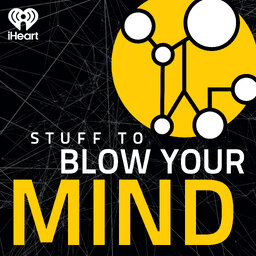The Failings of Forensic Science, Part I
What if bad science put you in prison for a crime you didn't commit? How many guilty offenders are still out there because of pseudoscience, fraud or disorganized laboratories? In this episode of Stuff to Blow Your Mind, Joe and Christian review the use of forensic science in law enforcement. Scientific evidence is prevalent in both courtrooms and popular culture. But why are we only recently questioning its validity?
Learn more about your ad-choices at https://www.iheartpodcastnetwork.com
In 1 playlist(s)
Stuff To Blow Your Mind
Deep in the back of your mind, you’ve always had the feeling that there’s something strange about re…Social links
Follow podcast
Recent clips

Crab Bag, Part 1: The Crabs are Back In Town
54:40

Weirdhouse Cinema Rewind: The Telephone Box
1:19:53

From the Vault: Mystery Cults, Part 3
1:03:47
 Stuff To Blow Your Mind
Stuff To Blow Your Mind